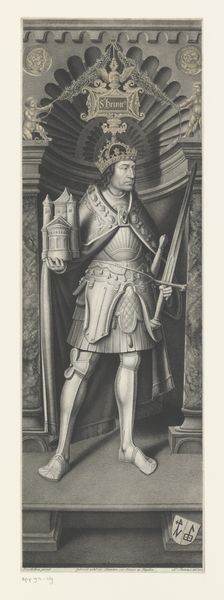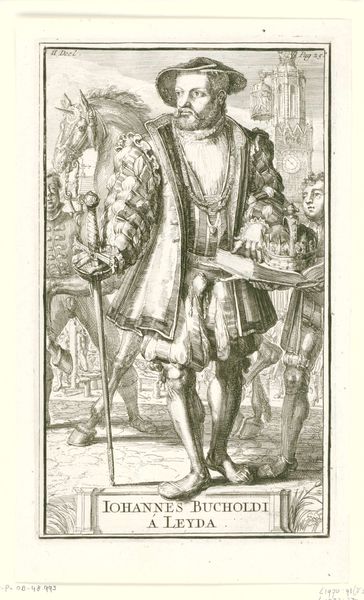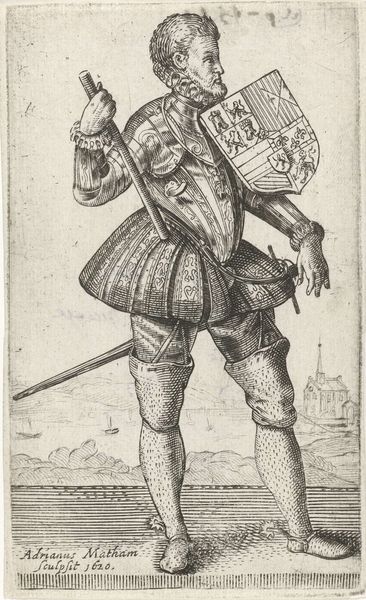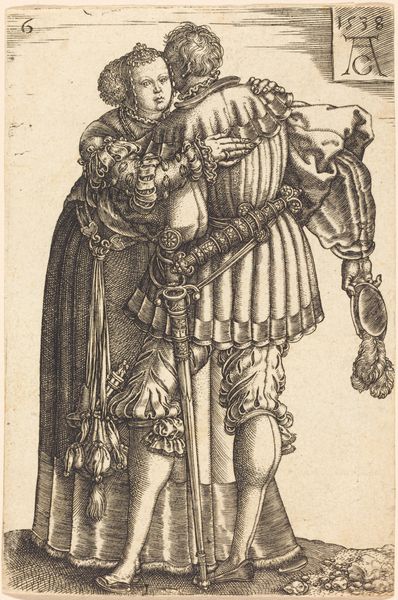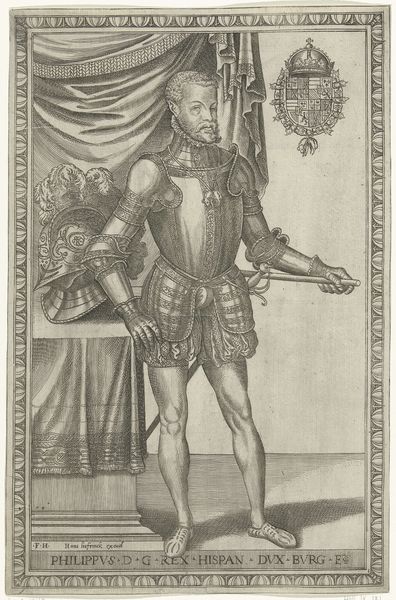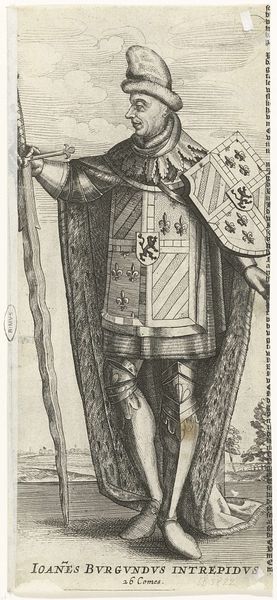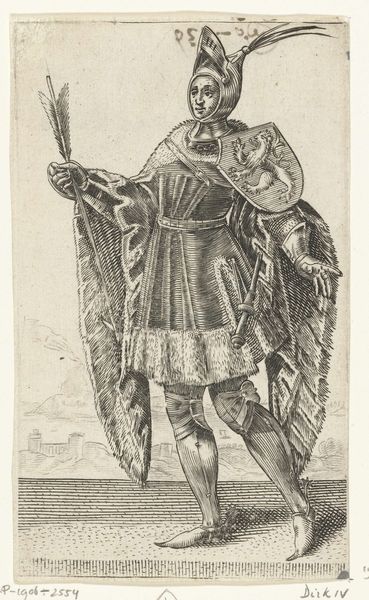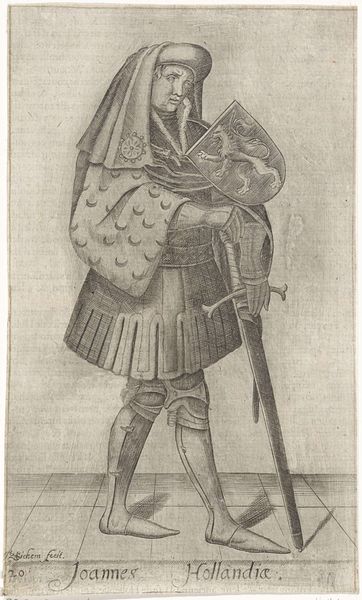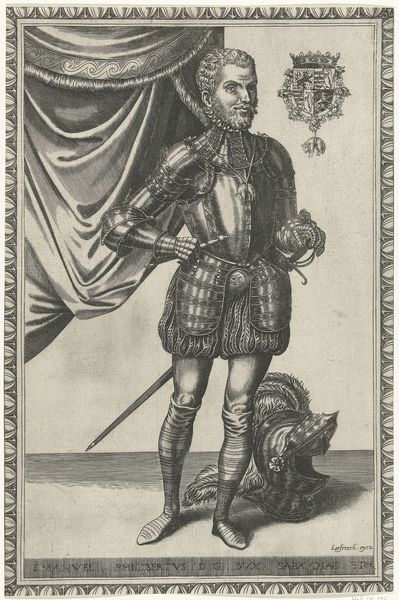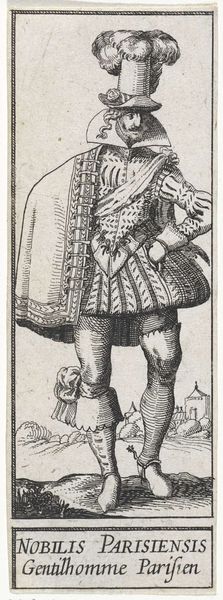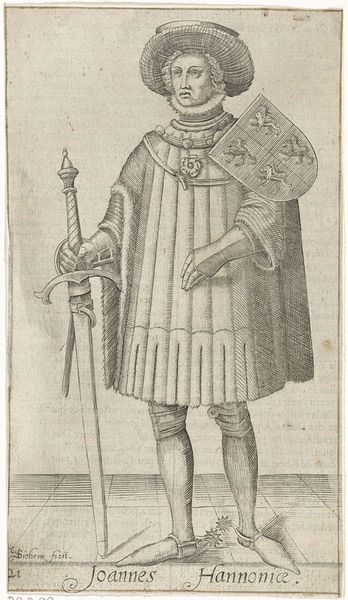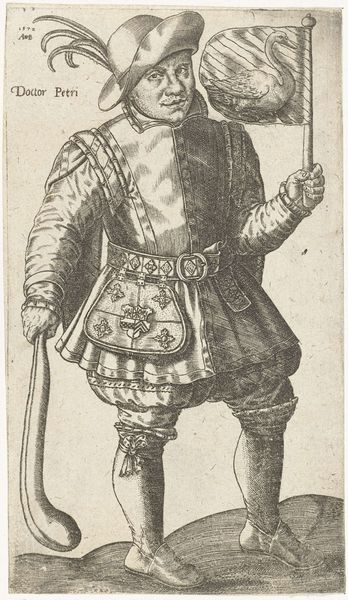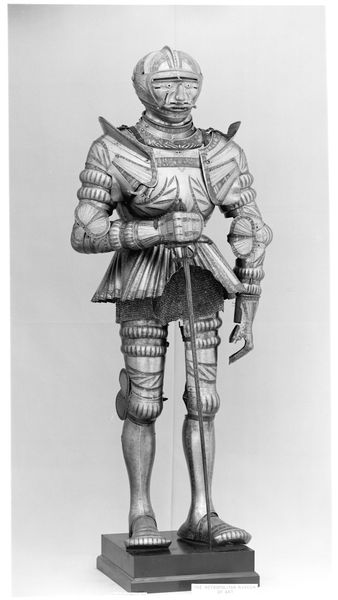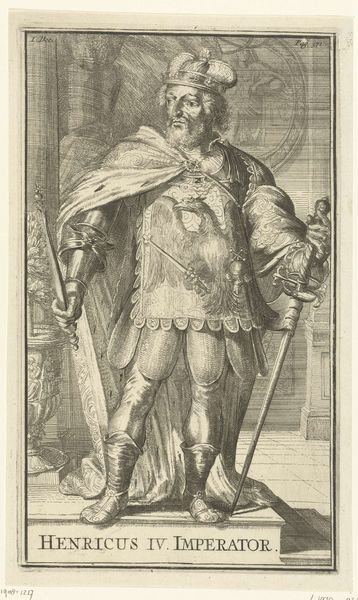
painting, oil-paint
#
portrait
#
painting
#
oil-paint
#
sculpture
#
11_renaissance
#
oil painting
#
history-painting
#
northern-renaissance
#
academic-art
#
italian-renaissance
Dimensions: 134.5 x 233 cm
Copyright: Public domain
Hans Holbein the Younger painted this portrait of Henry VIII in England, a country undergoing immense social upheaval. The king stands imposingly, radiating power and wealth. But this image isn't just a straightforward representation of the monarch. Holbein was a master of visual codes, using clothing and symbols to convey meaning. Look at the king's rich garments, the jewels, and the way he holds the dagger – these are all carefully chosen to project an image of authority and strength. In a period of religious reformation and political maneuvering, the Tudor dynasty needed to convey an aura of power. Holbein's image helped to construct and reinforce this Tudor mythology. Understanding the social conditions that shaped artistic production, along with analysis of the imagery itself, allows us a richer understanding of how this portrait functions in the history of power. Research into court records, letters, and other historical documents would deepen that understanding further. The meaning of art is always contingent on its social and institutional context.
Comments
No comments
Be the first to comment and join the conversation on the ultimate creative platform.
